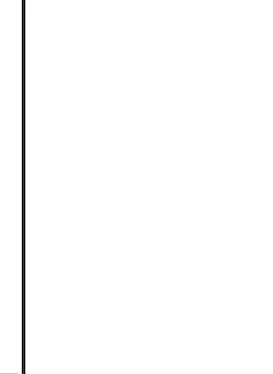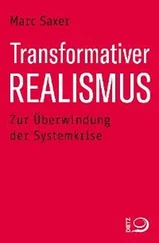Mark Fisher - Capitalist Realism - Is There No Alternative?
Здесь есть возможность читать онлайн «Mark Fisher - Capitalist Realism - Is There No Alternative?» весь текст электронной книги совершенно бесплатно (целиком полную версию без сокращений). В некоторых случаях можно слушать аудио, скачать через торрент в формате fb2 и присутствует краткое содержание. Жанр: Старинная литература, на английском языке. Описание произведения, (предисловие) а так же отзывы посетителей доступны на портале библиотеки ЛибКат.
- Название:Capitalist Realism: Is There No Alternative?
- Автор:
- Жанр:
- Год:неизвестен
- ISBN:нет данных
- Рейтинг книги:4 / 5. Голосов: 1
-
Избранное:Добавить в избранное
- Отзывы:
-
Ваша оценка:
- 80
- 1
- 2
- 3
- 4
- 5
Capitalist Realism: Is There No Alternative?: краткое содержание, описание и аннотация
Предлагаем к чтению аннотацию, описание, краткое содержание или предисловие (зависит от того, что написал сам автор книги «Capitalist Realism: Is There No Alternative?»). Если вы не нашли необходимую информацию о книге — напишите в комментариях, мы постараемся отыскать её.
Capitalist Realism: Is There No Alternative? — читать онлайн бесплатно полную книгу (весь текст) целиком
Ниже представлен текст книги, разбитый по страницам. Система сохранения места последней прочитанной страницы, позволяет с удобством читать онлайн бесплатно книгу «Capitalist Realism: Is There No Alternative?», без необходимости каждый раз заново искать на чём Вы остановились. Поставьте закладку, и сможете в любой момент перейти на страницу, на которой закончили чтение.
Интервал:
Закладка:
Many of the teenage students I encountered seemed to be in a state of what I would call depressive hedonia. Depression is Usually characterized as a state of anhedonia, but the condition
21
I'm referring to is constituted not by an inability to get pleasure so much as it by an inability to do anything else except pursue pleasure. There is a sense that 'something is missing' -but no appreciation that this mysterious, missing enjoyment can only be accessed beyond the pleasure principle. In large part this is a consequence of students' ambiguous structural position, stranded between their old role as subjects of disciplinary institutions and their new status as consumers of services. In his crucial essay 'Postscript on Societies of Control', Deleuze distinguishes between the disciplinary societies described by Foucault, which were organized around the enclosed spaces of the factory, the school and the prison, and the new control societies, in which all institutions are embedded in a dispersed corporation.
Deleuze is right to argue that Kafka is the prophet of distributed, cybernetic power that is typical of Control societies. In The Trial, Kafka importantly distinguishes between two types of acquittal available to the accused. Definite acquittal is no longer possible, if it ever was ('we have only legendary accounts of ancient cases [which] provide instances of acquittal'). The two remaining options, then, are (1) 'Ostensible acquittal', in which the accused is to all and intents and purposes acquitted, but may later, at some unspecified time, face the charges in full, or (2) 'Indefinite postponement', in which the accused engages in (what they hope is an infinitely) protracted process of legal wrangling, so that the dreaded ultimate judgment is unlikely to be forthcoming. Deleuze observes that the Control societies delineated by Kafka himself, but also by Foucault and Burroughs, operate using indefinite postponement: Education as a lifelong process... Training that persists for as long as your working life continues... Work you take home with you... Working from home, homing from work. A consequence of this 'indefinite' mode of power is that external surveillance is succeeded by internal policing. Control only works if you are complicit with it. Hence the Burroughs figure of the 'Control Addict': the one who is addicted to control, but also, inevitably, the one who has been taken over, possessed by Control.
Walk into almost any class at the college where I taught and you will immediately appreciate that you are in a post-disciplinary framework. Foucault painstakingly enumerated the way in which discipline was installed through the imposition of rigid body postures. During lessons at our college, however, students will be found slumped on desk, talking almost constantly, snacking incessantly (or even, on occasions, eating full meals). The old disciplinary segmentation of time is breaking down. The carceral regime of discipline is being eroded by the technologies of control, with their systems of perpetual consumption and continuous development.
The system by which the college is funded means that it literally cannot afford to exclude students, even if it wanted to. Resources are allocated to colleges on the basis of how successfully they meet targets on achievement (exam results), attendance and retention of students. This combination of market imperatives with bureaucratically-defined 'targets' is typical of the 'market Stalinist' initiatives which now regulate public services. The lack of an effective disciplinary system has not, to say the least, been compensated for by an increase in student self-motivation. Students are aware that if they don't attend for weeks on end, and/or if they don't produce any work, they will not face any meaningful sanction. They typically respond to this freedom not by pursuing projects but by falling into hedonic (or anhedonic) lassitude: the soft narcosis, the comfort food oblivion of Playstation, all-night TV and marijuana.
Ask students to read for more than a couple of sentences and many -and these are A-level students mind you -will protest that they can't do it. The most frequent complaint teachers hear is that it's boring. It is not so much the content of the written material that is at issue here; it is the act of reading itself that is deemed to be 'boring'. What we are facing here is not just time
23
honored teenage torpor, but the mismatch between a post-literate 'New Flesh' that is 'too wired to concentrate' and the confining, concentrational logics of decaying disciplinary systems. To be bored simply means to be removed from the communicative sensation-stimulus matrix of texting, YouTube and fast food; to be denied, for a moment, the constant flow of sugary gratification on demand. Some students want Nietzsche in the same way that they want a hamburger; they fail to grasp -and the logic of the consumer system encourages this misapprehension -that the indigestibility, the difficulty is Nietzsche.
An illustration: I challenged one student about why he always wore headphones in class. He replied that it didn't matter, because he wasn't actually playing any music. In another lesson, he was playing music at very low volume through the headphones, without wearing them. When I asked him to switch it off, he replied that even he couldn't hear it. Why wear the headphones without playing music or play music without wearing the headphones? Because the presence of the phones on the ears or the knowledge that the music is playing (even if he couldn't hear it) was a reassurance that the matrix was still there, within reach. Besides, in a classic example of interpassivity, if the music was still playing, even ifhe couldn't hear it, then the player could still enjoy it on his behalf. The use of headphones is significant here -pop is experienced not as something which could have impacts upon public space, but as a retreat into private 'OedIpod' consumer bliss, a walling up against the social.
The consequence of being hooked into the entertainment matrix is twitchy, agitated interpassivity, an inability to concentrate or focus. Students' incapacity to connect current lack of focus with future failure, their inability to synthesize time into any coherent narrative, is symptomatic of more than mere demotivation. It is, in fact, eerily reminiscent of Jameson's analysis in 'Postmodernism and Consumer Society'. Jameson observed there that Lacan's theory of schizophrenia offered a 'suggestive aesthetic model' for understanding the fragmenting of subjectivity in the face of the emerging entertainment-industrial complex. 'With the breakdown of the signifying chain', Jameson summarized, 'the Lacanian schizophrenic is reduced to an experience of pure material signifiers, or, in other words, a series of pure and unrelated presents in time'. Jameson was writing in the late 1980s -i.e. the period in which most of my students were born. What we in the classroom are now facing is a generation born into that ahistorical, anti-mnemonic blip culture -a generation, that is to say, for whom time has always come ready-cut into digital micro-slices.
If the figure of discipline was the worker-prisoner, the figure of control is the debtor-addict. Cyberspatial capital operates by addicting its users; William Gibson recognized that in Neuromancer when he had Case and the other cyberspace cowboys feeling insects-under-the-skin strung out when they unplugged from the matrix (Case's amphetamine habit is plainly the substitute for an addiction to a far more abstract speed). If, then, something like attention deficit hyperactivity disorder is a pathology, it is a pathology of late capitalism -a consequence of being wired into the entertainment-control circuits of hypermediated consumer culture. Similarly, what is called dyslexia may in many cases amount to a post-Iexia. Teenagers process capital's image-dense data very effectively without any need to read slogan-recognition is sufficient to navigate the net-mobilemagazine informational plane. 'Writing has never been capitalism's thing. Capitalism is profoundly illiterate', Deleuze and Guattari argued in Anti-Oedipus. 'Electric language does not go by way of the voice or writing: data processing does without them both'. Hence the reason that many successful business people are dyslexic (but is their post-lexical efficiency a cause or effect of their success?)
Читать дальшеИнтервал:
Закладка:
Похожие книги на «Capitalist Realism: Is There No Alternative?»
Представляем Вашему вниманию похожие книги на «Capitalist Realism: Is There No Alternative?» списком для выбора. Мы отобрали схожую по названию и смыслу литературу в надежде предоставить читателям больше вариантов отыскать новые, интересные, ещё непрочитанные произведения.
Обсуждение, отзывы о книге «Capitalist Realism: Is There No Alternative?» и просто собственные мнения читателей. Оставьте ваши комментарии, напишите, что Вы думаете о произведении, его смысле или главных героях. Укажите что конкретно понравилось, а что нет, и почему Вы так считаете.












